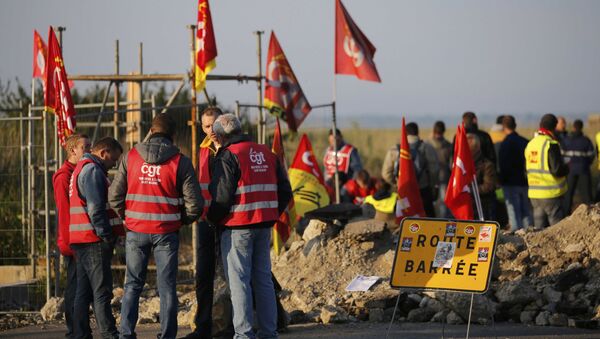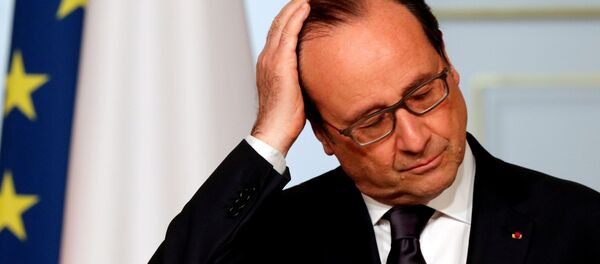French nuclear plant workers voted in favor of strike action, following on from a week of blockades of refineries and fuel depots by the powerful CGT union, which has seen fuel supplies across France dwindle.
The eight days of protests follow Hollande's decision to use a rare part of the constitution to bypass parliament, thus invoking reforms to the highly codified French labor laws.
#France: #CGT's statutory privileges threatened by Labor Law, unleashes war arsenal to prevent workers from voting https://t.co/PlzsuWwqYe
— LZ (@LZ_Paris) 26 May 2016
CGT energy and mining federation spokeswoman Marie-Claire Cailletaud said that 16 out of France's 19 nuclear stations had voted for strike action and that those stations will reduce power output, but not stop generating.
"One cannot just turn off a nuclear plant, it is not like a thermal or hydro plant," Cailletaud said.
The Ufip oil industry federation told France 24 that around a third of the country's 12,000 petrol stations were running dry. France has also mobilized its emergency fuel stocks for the first time since 2010 but officials said there was no risk of a shortage.
Unpopular Reforms
The labor reforms were largely directed at making companies take on more workers on permanent contracts, rather than temporary ones, to bring down the unemployment rate from ten percent. The proposals would give employers more scope to lay-off workers and cut costs and allow some employees to work far longer than the current 35-hour week.
Other reforms include a cap on severance pay for workers dismissed by a company. The current uncertain cost of laying-off workers mean that companies are risk-averse to doing so, leaving them less flexible and — in some cases — less productive. Opponents say the reforms would undermine workers' rights on pay, overtime and breaks.
The reforms would normally pass to the upper house of the French Parliament, where the Republicans have a majority, paving the way for a political ping-pong match, but Hollande's Prime Minister Manuel Valls has won cabinet approval to invoke the rarely-used Article 49.3 of the constitution which allows the reform bill to bypass parliament.





